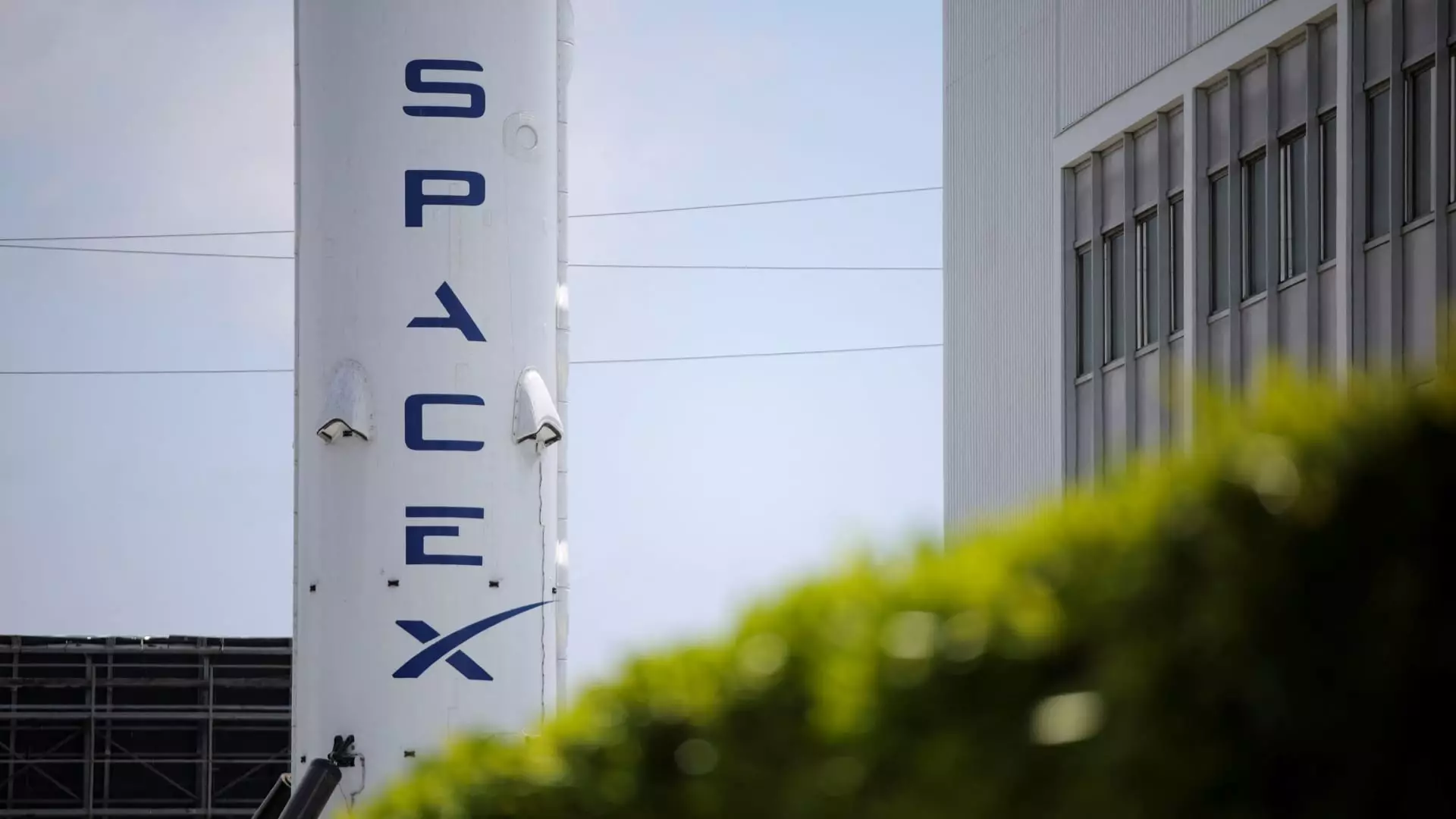The recent upheaval surrounding SpaceX’s contracts amid a volatile political landscape showcases the intricate dance between corporate interests and governmental power. It is increasingly clear that we are not merely witnessing a clash of personalities—President Donald Trump against Elon Musk—but rather an unfolding scenario where national security and fiscal responsibility are being obscured by personal vendettas and public posturing. It’s a reminder of the disquieting relationship that can arise when business empires intertwine with the demands of government oversight.
Trump’s administration demanded scrutiny over SpaceX’s extensive $22 billion worth of contracts following a thunderous public spat with Musk. This order raises important questions about the role individual politics play in decision-making processes that should primarily benefit the national interest. While official rhetoric emphasizes a commitment to rigorous review processes, the underlying tension is palpable, suggesting the administration is poised for action fueled more by ego than logic. This represents a disconcerting trend indicating that a company’s success might be jeopardized should it offend the wrong political figure.
The Perils of Subjective Scrutiny
The government’s impending review of Musk’s contracts captures a profound irony. The same lens of scrutiny applied to other contractors by Musk’s own Department of Government Efficiency (DOGE) is now being turned back on him. This reflects a troubling shift away from an objective evaluation based on merit toward a battleground of personal grievances. Scott Amey, a contracting expert, provides a poignant critique, warning against allowing the whims of two powerful men to dictate the fate of contracts that hold far-reaching implications for public safety and national security.
The power dynamic here is alarming; it illustrates how the political landscape can wield undue influence over industries crucial to aerospace, defense, and space exploration, blurring the lines that should clearly delineate corporate collaboration from political vendetta. This scenario is a potent reminder of the dangers inherent in allowing individual rivalry to taint contracts that should operate under the banner of public good.
Space Exploration’s Burgeoning Complications
SpaceX has, in recent years, emerged as a vital ally of the U.S. government, powering missions that safeguard national interests and bolster scientific advancement. The irony of this relationship cannot be understated; Musk, a figure celebrated for innovation, is now standing on the precipice of potential governmental backlash. The threats he has levied against the very government that supports him only highlight the precariousness of his position. His recent musings on decommissioning the Dragon spacecraft—a critical asset for NASA—are emblematic of a larger struggle, representing a potential tug-of-war between securing contracts and placating government officials.
Yet the stakes transcend mere contractual obligations; they resonate deeply within the realms of national security. SpaceX is not merely launching satellites but is actively involved in constructing a framework of missile defense that possesses the potential to protect the nation from existential threats. Each satellite positioned in orbit, while a business transaction at its core, serves a higher purpose—defending America from catastrophic encounters.
The Uneasy Gatekeepers of Power
As the situation develops, the concepts of good governance, transparency, and ethical oversight hang undetermined in the balance. Governance experts warn against the possibility that this political spat may morph into an abuse of the hefty economic leverage that the government holds. Questions arise as to whether officials will manipulate their authority to penalize political foes rather than make decisions founded on objective assessments and the well-being of citizens.
Moreover, the unfurling saga enforces a critical examination of governmental intentions. Should we trust that these widespread reviews are, in fact, aligned with the national good, or are they merely exploiting the vulnerabilities of a billionaire who dared to challenge the power structure? The juxtaposition of Musk’s innovative vision against a backdrop of political retribution poses difficult dilemmas that demand careful introspection and robust dialogue among citizens and policymakers alike.
What remains essential in navigating this politically charged environment is an unwavering commitment to keeping the conversation centered on ethics and the public interest—not on personal grievances. As we progress in the era of space exploration, the imperative lies not just in the advancement of technology but in fostering a culture of responsibility that prioritizes the welfare of the nation above all.

Leave a Reply